30 Years and Counting The 25th SIFF Warps up
The 25th Shanghai International Film Festival (SIFF) successfully took place during June 9-18. It was a star-studded festival this year, which brought together filmmakers around the world for 10-day celebrations and interactions, and also provided an opportunity for them and ordinary folks alike to enjoy many masterpieces.

A platform for film masters and masterpieces
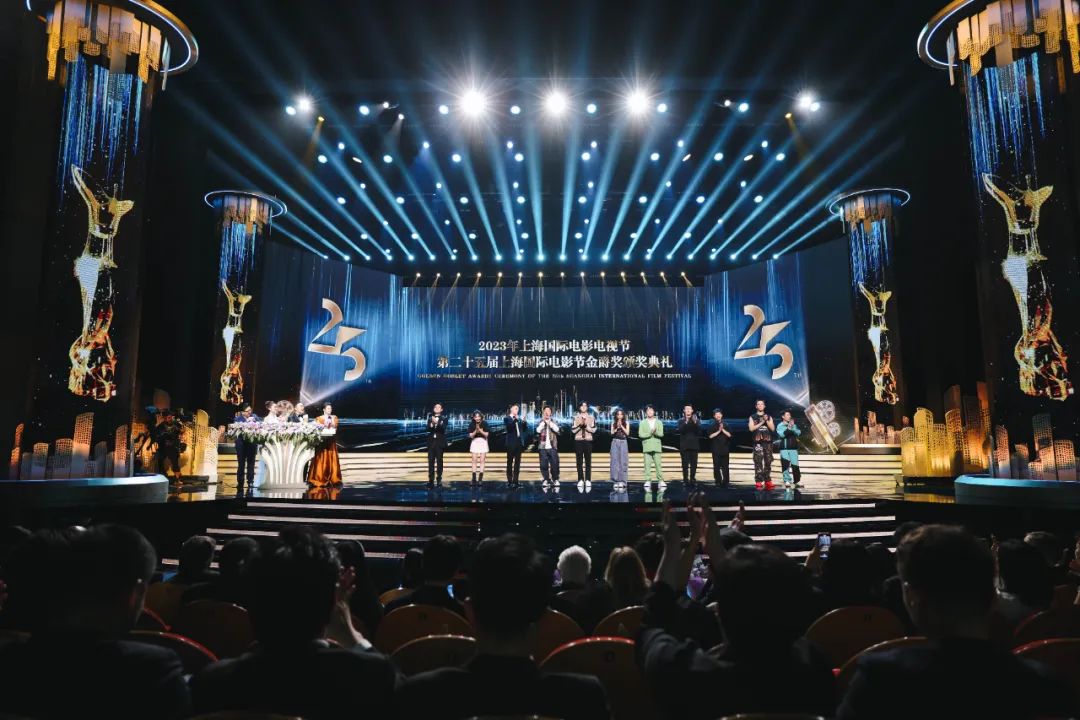
This year marks the 30th anniversary of SIFF. At the Gala Night, which took place on Day One, renowned filmmakers Chen Kaige, Chow Yun Fat, and Michelle Yeoh paid tribute to SIFF for its 30 years of success. Chen, one of the most well-known directors in China, said: “The best gifts for a film festival can only be films.” This year, filmmakers across the world brought such gifts to China’s film enthusiasts. The festival brought together 53 film crews from 26 countries and regions shortlisted for this year’s Golden Goblet Awards including the Main Competition, the Asian New Talent, the Documentary, the Animation, and the Short Film sections. Of all the entries, 36 were for their world premieres, and 12 were for their international premieres. They were on a wide range of subjects and were presented from diverse perspectives. Of those for the Main Competition, there were new works by established filmmakers and some from emerging filmmakers. The 91-year-old famous Japanese director Yoji Yamada came to Shanghai with his 90th film Mom Is That You?, who is still expecting his next film. “I want to make a light-hearted film that brings fun to everyone with joyful scenes,” he said. Paolo Genovese, director of the Italian film The First Day of My Life, made his fourth appearance at SIFF. He used to serve as a jury member for the Main Competition of the Golden Goblet Awards. “SIFF offers a great opportunity for us to showcase our films, and it allows me to know how Chinese audience here feel about my films,” he said.

As always, SIFF served as a bridge to connect people through films. Vivian Qu, a jury member for the Main Competition of this year’s Golden Goblet Awards, said: “SIFF is a window for filmmakers around the world to interact with each other. Although there are competitions, it is not about competition at the end of the day, but about communication.” The Asian New Talent section of this year’s Golden Goblet Awards, for example, was focused on the diversity of the film culture. Lee Phongsavanh, director of the Lao film The Signal shortlisted for this section, said at the press conference: “For a Lao film, being shortlisted for SIFF to meet the viewers in Shanghai has proved its appeal, and I’m happy for that.”
Established five years ago, the Belt and Road Film Week has become a refined part of SIFF. This year, people from 20 member institutions in 18 countries and regions got together to touch base and give advice on how to further enhance cooperation and drive the high-quality development of the film industry. Vassilis Xiros, who attended the Belt and Road Film Week as a guest of honor during his tenure as the Consul General of Greece in Shanghai, became a film director and screenwriter after retiring as a career diplomat. With the support of SIFF, he began to shoot his first film A Day in the Life of a Teddy Bear in Shanghai in 2019. This year, the film as a joint production between China and Greece was showcased in Shanghai for a special screening. It was a dream come true for the diplomat-turned “new” film director.
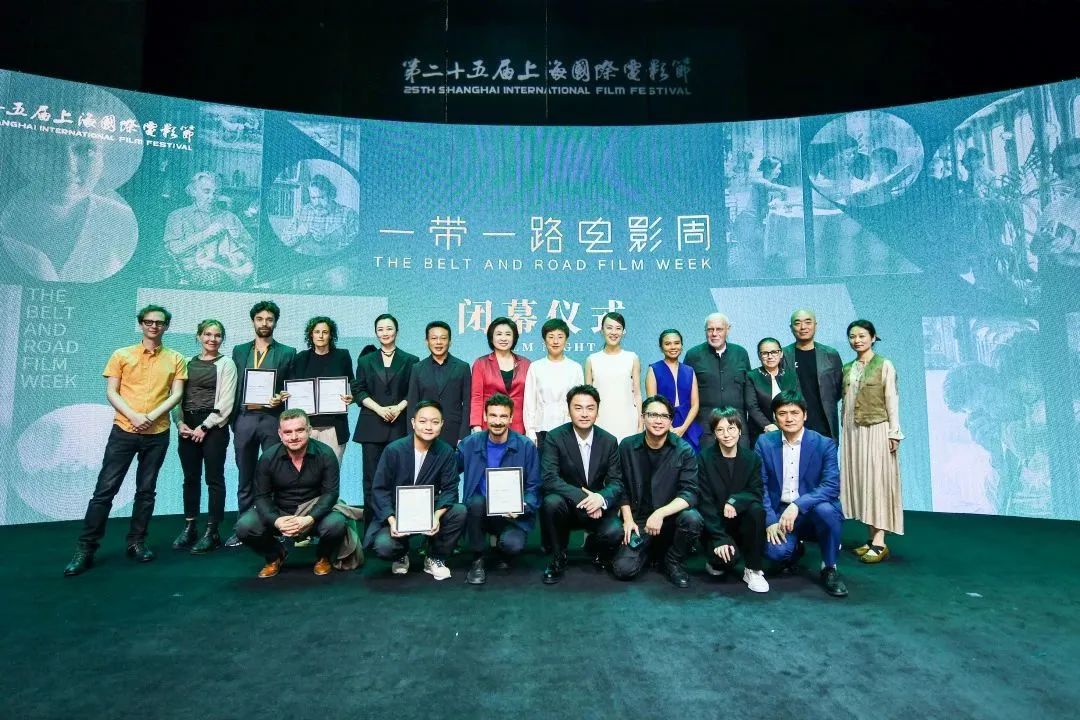
The Belt and Road Film Week brought 20 distinctive films from Belt and Road countries to viewers in Shanghai, Nanjing, Suzhou, Hangzhou, Ningbo, and Hefei. At the closing ceremony of the Belt and Road Film Week, Israeli film Valeria Is Getting Married received the Audience Choice Award; Absence by Chinese director Wu Lang and Safe Place by Croatian director Juraj Lerotic received the Media Choice Award for Films; and Hungarian actress Katalin Román starring in the film Six Weeks, and Michal Vinik, scriptwriter and director of Valeria Is Getting Married, received the Media Choice Award for Filmmakers. By the end of the festival, 111 new films by 115 directors from 49 countries had been screened during the Belt and Road Film Week.
A platform for collaboration and growth
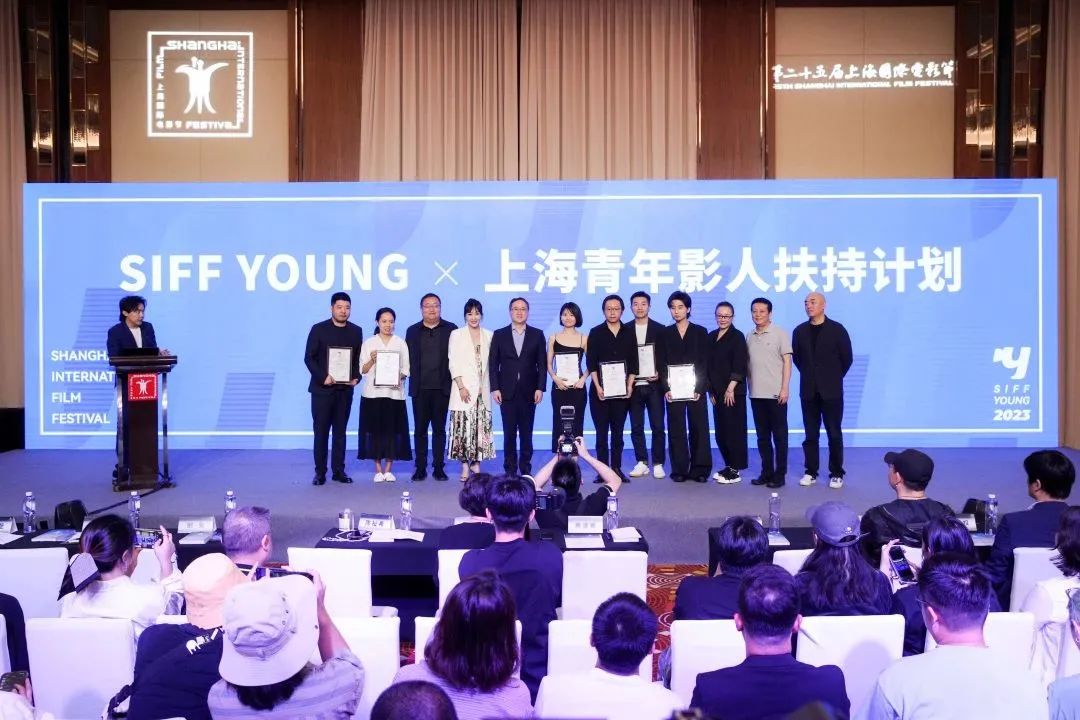
SIFF is committed to cultivating emerging filmmakers with a focus on “Asia, Chinese Film, and Newcomers”. The festival has put into place a “6+1” talent training system: SIFF EXPLORE; Short Film of Golden Goblet Awards; SIFF NEXT; SIFF PROJECT; Asian New Talent of Golden Goblet Awards; Golden Goblet Awards; plus SIFF YOUNG. This year, SIFF PROJECT received a total of 679 valid applications, of which 33 were shortlisted, including 8 for the NEW TALENT PROJECT, 2 for the CO-PRODUCTION PROJECT, 13 for the PRE-PRODUCTION PROJECT, and 10 for the WORK-IN-PROGRESS PROJECT (WIP). 643 negotiations took place throughout this year’s SIFF. Different parts of the “6+1” system worked effectively with each other, to support the growth of emerging filmmakers, and to create various opportunities for different phases of projects and different levels of filmmakers. Those who were shortlisted for SIFF Young include directors Wen Muye, Shen Ao, Liu Xunzimo, Shao Yihui, and Li Xiaofeng, producer Dun He, and screenwriter You Xiaoying. All of them received widespread attention for their success. Supported by Shanghai’s policy for the film industry, they will be able to further unleash their creative potential. Absence, the opening film of the Belt and Road Film Week, was shortlisted for the NEW TALENT PROJECT back in 2019 and selected as a “Special Mention” by the jury panel. One And Four, an entry for the WORK-IN-PROGRESS PROJECT (WIP) in 2020, was screened this year. Among the 33 finalists for SIFF Project, some were new films from the “old friends” of SIFF. Malaysian director Tan Chui Mui, who served as a jury member for the Asian New Talent part of the 20thSIFF, came to compete for SIFF PROJECT this year with her project All About Yuyu. She said: “Maintaining the mindset of a newcomer will get the best out of a filmmaker.” SIFF is 30 years old and counting. For the festival, “growth” is always an interesting subject. Jerzy Skolimowski, the 82-year-old jury president for this year’s Golden Goblet Awards, said: “I think my latest film EO is the best work I’ve ever made throughout my career, and I’m still a young director to some extent.”

To continue its success over the past 30 years, SIFF would have to rely on the strong recovery of China’s film market. The festival also provides a platform for the industry to unleash its potential and for filmmakers and production companies to announce their new projects. This year, a total of 75 Chinese films were screened, including 17 shortlisted for the Golden Goblet Awards in five sections. Among them, 22 Chinese films made their global debut (e.g. Within, 100 Yards, Never Say Never, and the new 4K version of Early Spring), and the casts of The Great War, Creation of the Gods I: Kingdom Of Storms, and Born to Fly were featured on the red carpet at the opening ceremony. Moreover, Lover Never Ends and One and Only as the opening and closing films this year demonstrated the vision and expectation of Chinese filmmakers for the film industry.


Launched with the opening session themed “Chinese Film Industry in the Global Context", SIFFORUM featured 12 dialogues of Chinese and overseas filmmakers across the value chain of the film industry this year. At a forum commemorating the 100th birthday of the late Chinese director Xie Jin, filmmakers paid tribute to the master through their personal experience or their unforgettable memories. At SIFF MasterClass, four well-known Chinese and foreign filmmakers including Hong Kong (China) director Chan Ho-San, Hungarian director Ildikó Enyedi, Chinese director Zhang Lu, and Japanese director Sho Miyake shared their insights, inspirations and best practices.
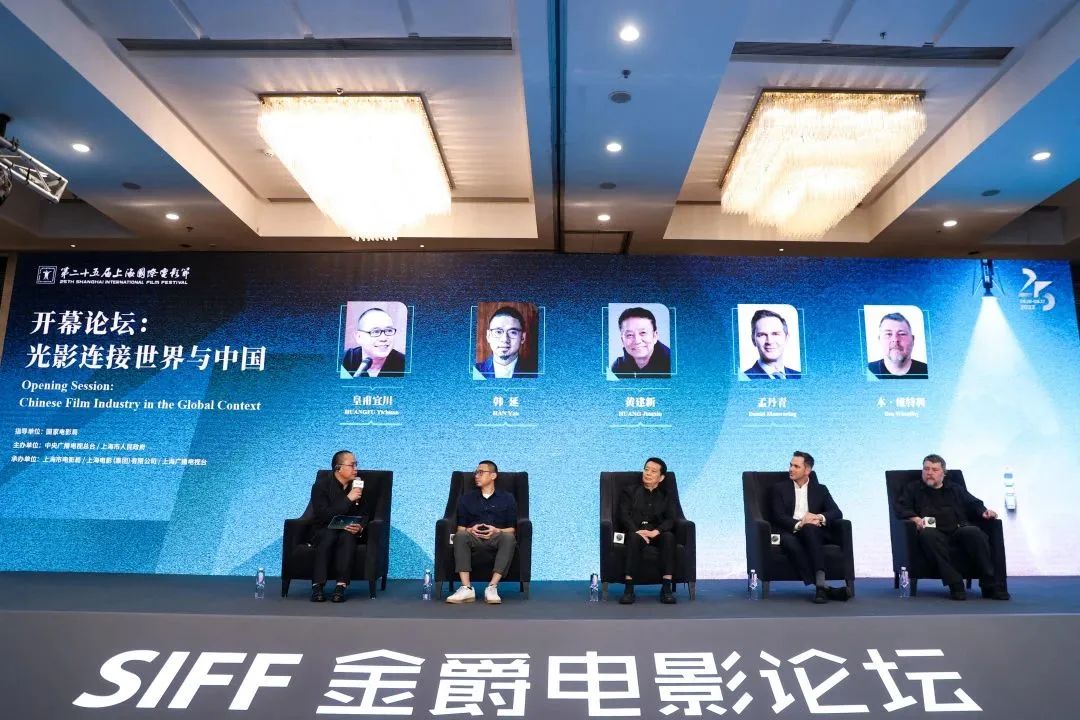
This year, SIFF Market went offline again across the board thanks to the recovery of both the film industry and the economy in general. The event brought together more than 100 exhibitors from 29 countries and regions, involving production and distribution, shooting facilities, content production, post-production, film academies, investment and finance, technical support, etc. There were 9 market events and 5 market screenings. A significant change this year was that the exhibitors came to the event not just for copyright trading, but also, more importantly, for demonstrating their country’s or their region’s film policy and film market. The International Film & TV Online Market continued to be held this year, showcasing 120 exhibitors and 297 projects from 27 countries and regions. As the industry is seeking changes, so is SIFF Market. It is trying to reach every corner of the industry, and to become more accurate and more value-added as the industry’s “weathervane”.
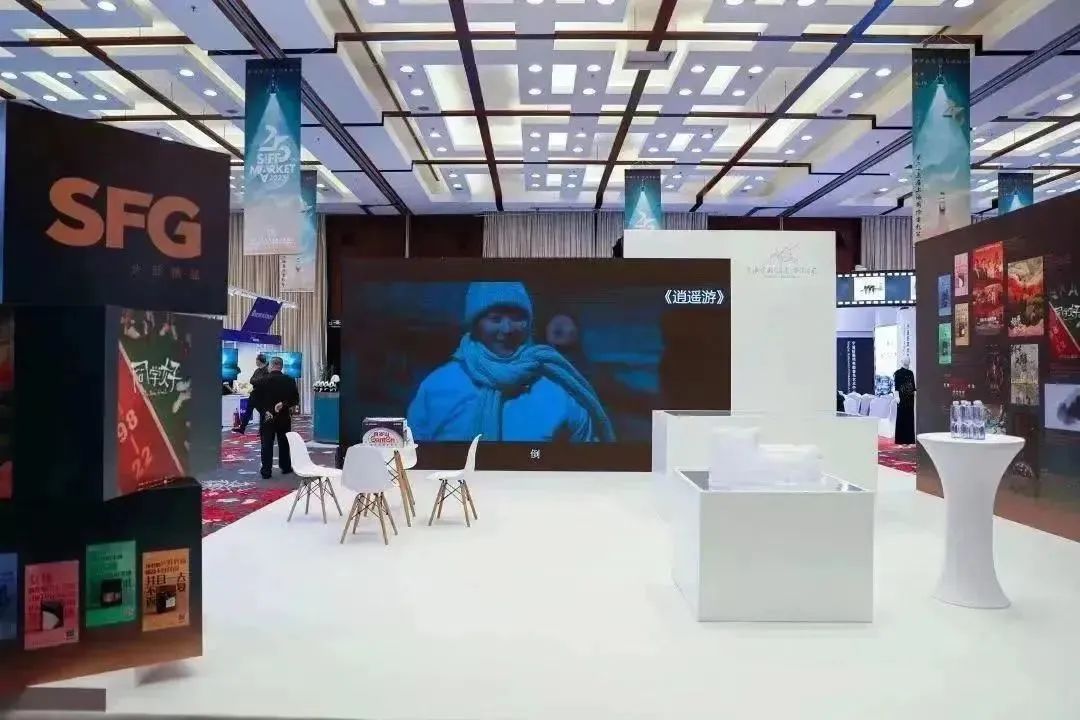
A platform for innovation driven by technology
The art of filmmaking will be vibrant with a flourishing film industry. This year’s SIFF embraced cutting-edge filmmaking technologies, especially digital technologies, to empower the upgrading of filmmaking. In cooperation with the China Film Association, the organizers of this year’s SIFF launched a Sci-Fi Film Week in Shanghai’s Songjiang District, which brought together Chinese sci-fi filmmakers Frant Gwo, Wang Hongwei, Lu Chuan, Zhang Chiyu, and Dong Runnian to hold talks and share their insights. Together, they discussed how to drive the upgrading of the film industry through technology and envisioned a beautiful future for filmmaking made possible by technology.

Shanghai is the birthplace of filmmaking in China. While carrying on the traditions, Shanghai is also embracing new things and creating new experiences. Cinema in Focus, an event of SIFF VISION LAB, took place in the Putuo District. It showcased cutting-edge technologies for 360° panoramic cinemas, 3D interactive experiences, virtual reality (VR), and extended reality (XR), and so on, to spark the interest of the viewers in filmmaking technologies, and to motivate them to join the industry and help make China a powerhouse in filmmaking.

Over the years, SIFF has served as a professional and prestigious platform for Chinese and international filmmakers to touch base on the industry’s new trends, new developments, and new directions. Shanghai is currently driving digital transformation across the city. As such, this year’s SIFF featured the metaverse concept. Metafilm at the Shanghai International Film and TV Festival Metaverse Experience & Roadshow Center attracted nearly 100,000 filmmakers and film fans to experience the unlimited possibilities of filmmaking in the future. Driven by Shanghai’s strategy to become a global center for filmmaking and a global center for technological innovation, the organizers of this year’s SIFF took advantage of its online and offline resources to deliver immersive and interactive experiences like no other for both filmmakers and film fans.
A cultural feast for everyone
It was an inclusive film festival this year. Nearly 450 films from 70 countries and regions divided into 16 main units and 37 sub-units were screened for a total of 1,490 sessions in the newly renovated Shanghai Film Art Center as well as 40 select cinemas across 16 districts of Shanghai. The casts met with the viewers before or after screening during 80 of the sessions. As of June 18, 427,000 people had watched the films during this year’s SIFF. In addition to screenings at indoor cinemas, the drive-in cinema at the Chen Shan Botanical Garden in Shanghai also played 6 RETRO films featured in the Sci-Fi Film Week, offering 48 parking spots each session, which became a special experience during this year’s SIFF. Furthermore, 6 cinemas in Nanjing, Suzhou, Hangzhou, Ningbo, and Hefei also screened 6 films featured in the Belt and Road Film Week for a total of 36 sessions.
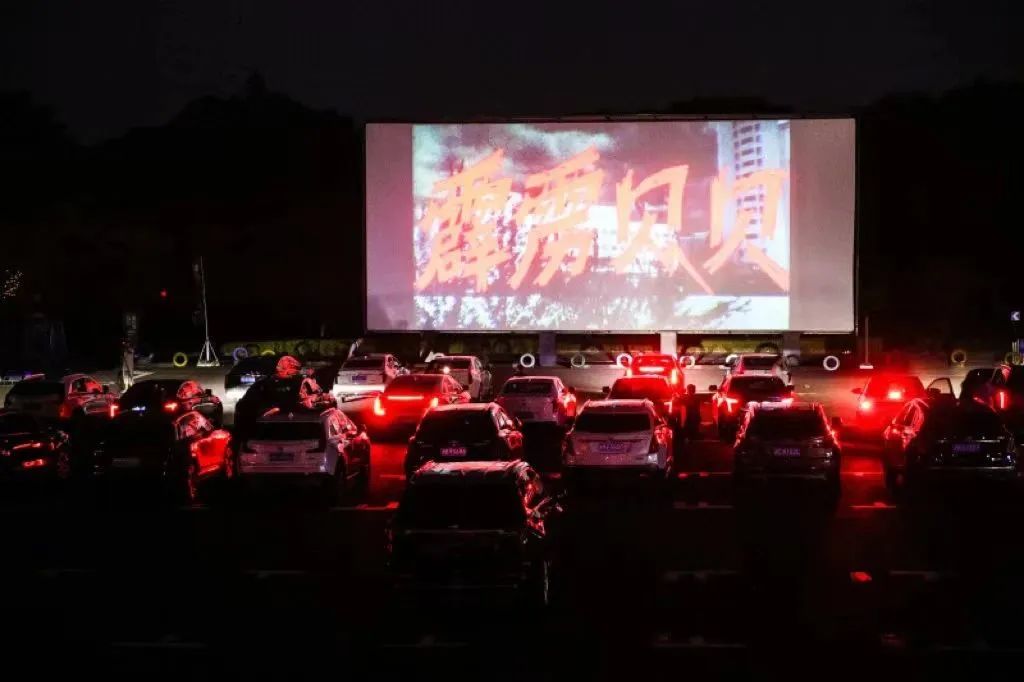
SIFF SHOOTING 48H at the Shanghai International Resort brought together 8 teams of young people selected from 117 teams signed up for the challenge. Aiming “To Create for the Future”, they had to shoot films within 48 hours drawing inspirations from landscapes. Director Liu Xiaoshi, who recommended them, encouraged the participants by saying: “Keep going, no matter what.” Inspired by that, those young people embraced the challenge and were set to go one step further and join the filmmaking procession.
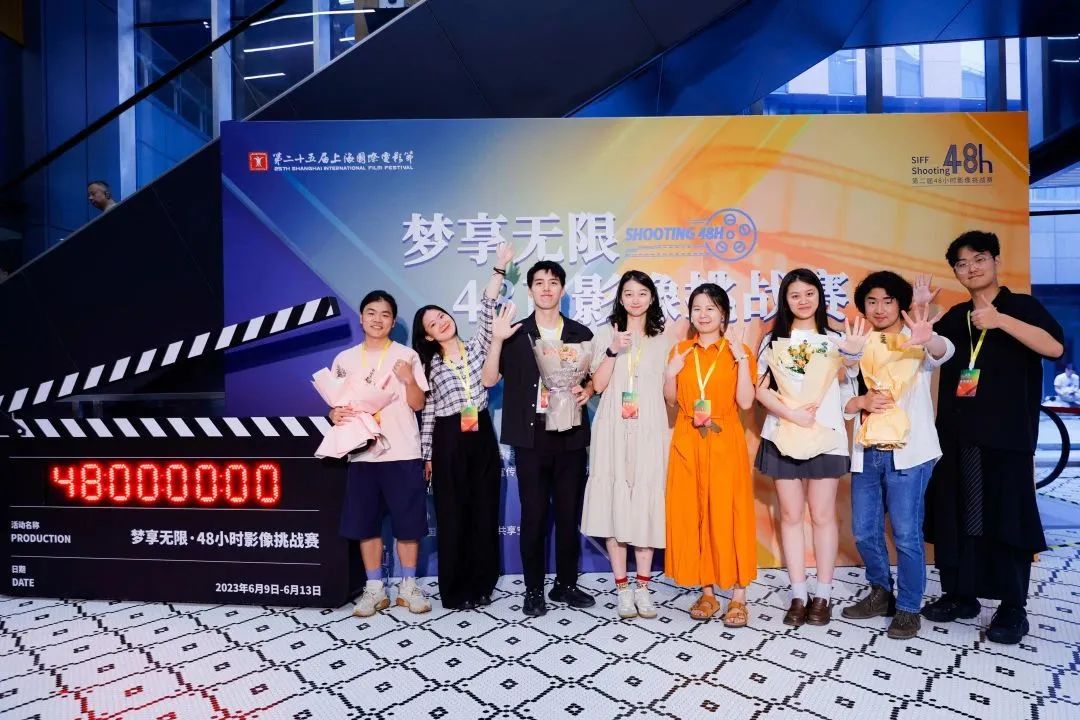
For this year’s SIFF, nearly 9,000 people signed up to become volunteers, and 735 of them were eventually recruited. They worked at the event’s registration center or did things such as reception, translation, proofreading, subtitling or media service. About 90 of the volunteers were from places other than Shanghai, and some were even overseas volunteers.
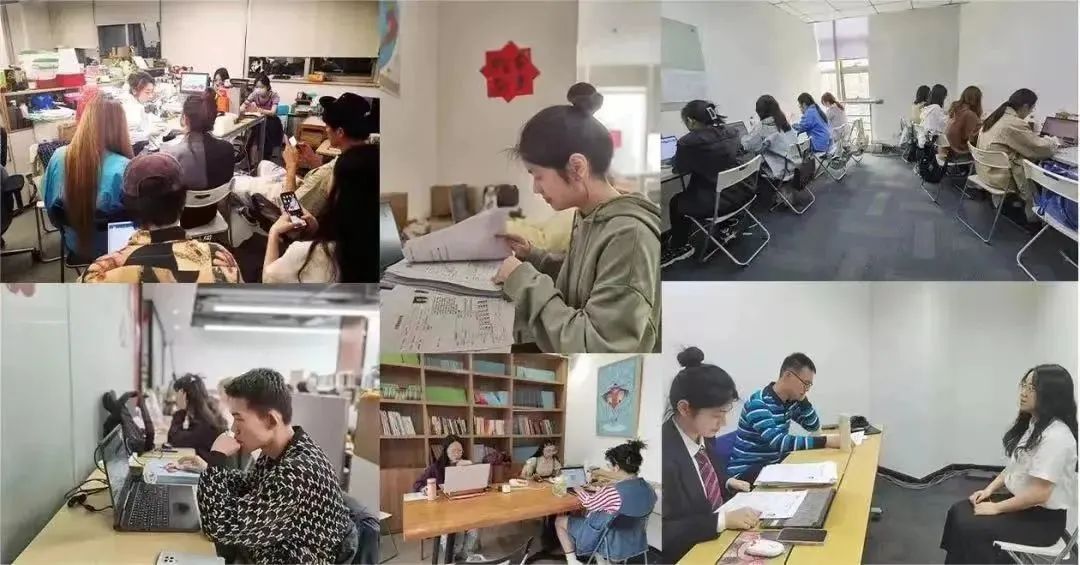
The “Glorious Days of SIFF” exhibition for the 30th anniversary of SIFF at the Grand Theater received over 20,000 visitors, featuring memorabilia such as posters and Golden Goblet trophies from previous years as well as souvenirs from the fans.

The passion of the fans and the vision of the filmmakers epitomized the city’s aspiration for a better future, which was demonstrated to the whole world.
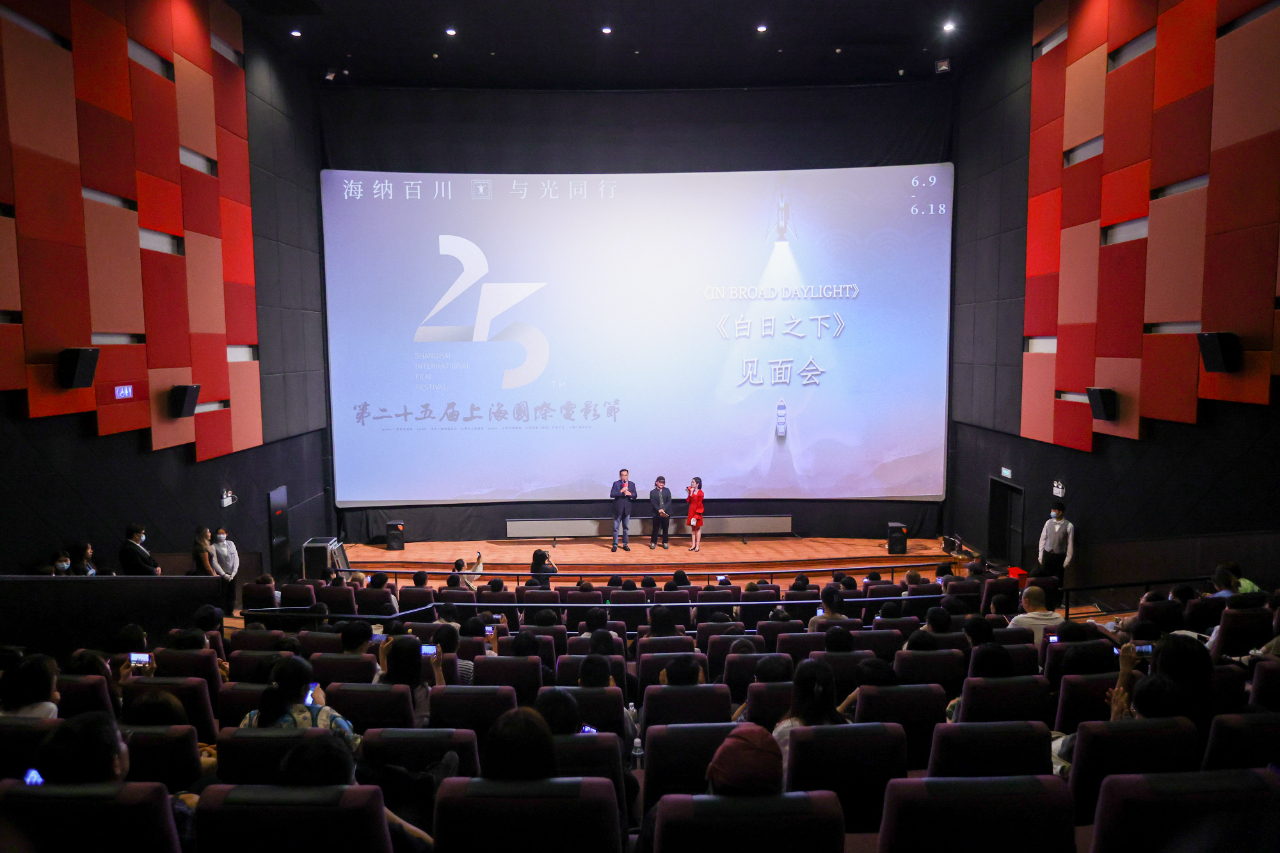
The winners of the 25th SIFF Golden Goblet Awards were announced at the ceremony at the night of June 17:
1. Best Feature Film
YOKO (Japan) directed by Kazuyoshi Kumakiri
2. Jury Grand Prix
MUYERES (Spain) directed by Marta Lallana
3. Best Director
LIU Jiayin for ALL EARS (China)
4. Best Actor
HU Ge in ALL EARS (China) directed by LIU Jiayin
Da Peng in DUST TO DUST (China) directed by Jonathan Li
5. Best Actress
Rinko Kikuchi in YOKO (Japan) directed by Kazuyoshi Kumakiri
6. Best Screenplay
Muroi Kosuke/Namiko Sou for YOKO (Japan) directed by Kazuyoshi Kumakiri
7. Best Cinematography
Toni Vidal for MUYERES (Spain) directed by Marta Lallana
8. Outstanding Artistic Achievement
GOOD AUTUMN, MOMMY (China) directed by CHEN Shizhong
9. Best Documentary Film
ANXIOUS IN BEIRUT (Jordan/Lebanon/Qatar/Spain) directed by Zakaria Jaber
10. Best Animation Film
FOUR SOULS OF COYOTE (Hungary) directed by Áron Gauder
11. Best Live Action Short Film
THE HOUSE WE HAD (Russia) directed by Andrey Krechetov
12. Best Animated Short Film
CHASING BIRDS (Iceland/Canada) directed by Una Lorenzen







